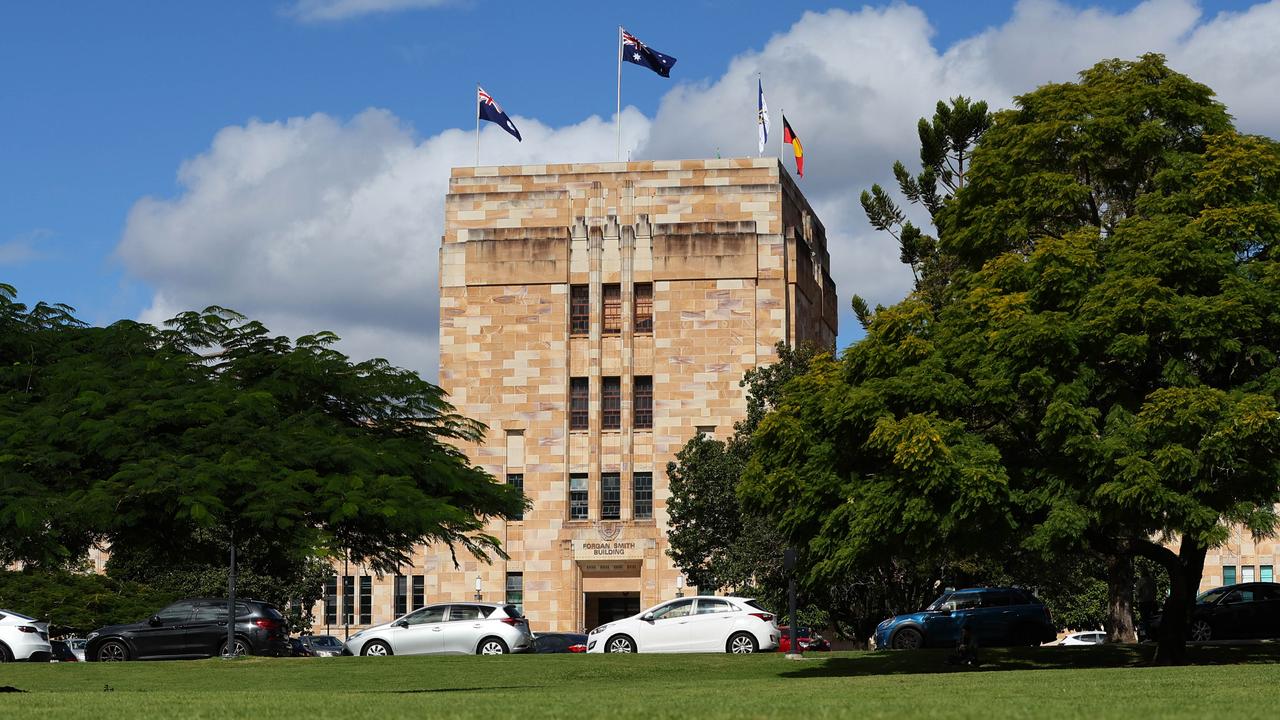Fees as low as $1250 for short university courses
Career experts say the Federal Government's significantly reduced fees for short courses will help skills shortages among unemployed people and diversify talent pools after graduation. SEE THE LIST

Tertiary
Don't miss out on the headlines from Tertiary. Followed categories will be added to My News.
CAREER experts say the Federal Government's significantly reduced fees for short courses will help skills shortages among unemployed people and diversify talent pools after graduation.
In a bid to support workers displaced by the COVID-19 crisis who are looking to upskill or retrain, the Government has slashed course prices, with the maximum student fees for the first six months as low as $1250.
Education Minister Grace Grace: ‘Of course schoolies will be cancelled’
Coronavirus chaos means ANU will accept Year 11 results
It comes as Australian tertiary education providers fear losses of up to $4.6 billion.
Federal Education Minister Dan Tehan on Saturday said the package would also provide a new revenue stream for universities and private providers that have taken a financial hit due to the coronavirus.
Griffith University employment relations and human resources professor Ruth McPhail said short courses were often enough to secure entry level employment which will help in areas with skills shortages and to diversify talent pools once graduated, however some professions would still require the student to complete the full degree before employment.
“Short courses are just that – short, which means they do not have same the same quantity of education as a full degree so they need to be set up and used to meet a specific need and purpose in the employment market,” she said.
“The courses on offer are also in specific areas and students should investigate carefully that they will achieve employment as a result of gaining a short course qualification in that area.
“The prices are substantially reduced but that begs the question of who is paying for the discount as quality education with good employment outcomes was – and still is – not cheap and requires substantial funding.”
Courses across industries such as teaching, nursing, and foreign languages are as low as $1250, while science, engineering and medical fields have fees of $2500.
Universities Australia chair Professor Deborah Terry said the package would give people essential skills needed to help rebuild the nation’s economy once the pandemic is over, however an estimated 21,000 jobs at Australian universities will be lost in the next six months.
Universities across the state, including Griffith, University of Queensland and Queensland University of Technology, have welcomed the government’s announcement, however QUT vice-chancellor Margaret Sheil said there were potential constraints.
“We are still working through the details and we are in discussions with the Government about this,” she said.
“While we hope to be able to assist the Federal Government and any prospective students, there are some potential constraints we need to work through first.”
Griffith University senior deputy vice-chancellor Professor Debra Henly said the university was also working through the details of the announcement, including the opportunity to offer additional short courses and professional learning programs.
Education providers who offer enrolments in these micro-credentials or short courses, which are expected to be offered from May 1 for six months, will be required to award the student a higher education certificate if they complete the six months of study.
Study will take place at Australian Qualification Level 5 (diploma) to 8 (masters degree), and must contribute to a qualification recognised under the AQF.

Twenty-year-old Bridget Zande recently lost her administration job at a property company due to the financial strain of coronavirus.
She’s now hoping to use her free time to jump into a new field.
“I got stood down without pay three weeks ago, it was a shopping centre company so they had a big loss and I couldn’t really do my job from home,” she said.
“A few weeks ago, I wouldn’t have thought of changing fields, now I’m looking at it as an opportunity to do other things.”
Ms Zande says the slashed prices were “definitely” an incentive to study.
“After this I am keen for some job security and to look for another job, I will be competing with other people so the study would give me a leg up,” Ms Zande said
“I guess kind I’m thinking online courses like any admin courses, nutrition, anything food or health-related.”
MAXIMUM COST FOR SIX MONTHS’ TUITION
Teaching $1250
Nursing $1250
Psychology $1250
English $1250
Mathematics $1250
Foreign Languages $1250
Agriculture $1250
Allied Health $2500
Other Health $2500
Information Technology $2500
Architecture and Building $2500
Science $2500
Engineering $2500
Medical science $2500
Environmental studies $2500


